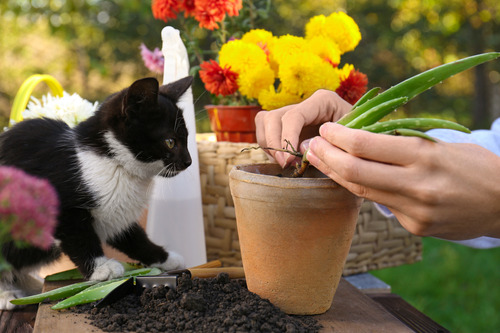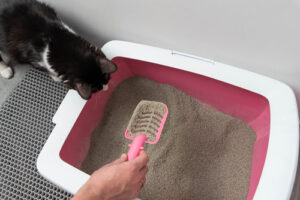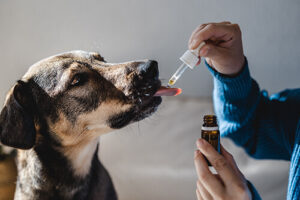When decorating your home with greenery, it’s essential to choose plants that are safe for all members of your family, including your pets. A question we often hear from cat owners is, “Are aloe plants toxic to cats?” This blog post aims to shed light on this important issue, providing pet owners with the information they need to protect their beloved cats from potential harm. At Montgomery Veterinary Associates in Montgomery, AL, we’re dedicated to helping you keep your pets healthy and happy.
Understanding the Risks of Aloe Plants to Cats
Aloe vera, known for its medicinal properties for humans, unfortunately, does not offer the same benefits to our feline companions. The gel inside the aloe plant is widely used in skincare and health products for its soothing and healing properties. However, the outer part of the plant contains saponins, which are toxic to cats.
Symptoms of Aloe Poisoning in Cats
If your cat ingests part of an aloe plant, they may exhibit symptoms such as:
- Vomiting
- Diarrhea
- Lethargy
- Changes in urine color
These signs can appear within a few hours of ingestion and require immediate attention from a veterinarian.
What to Do If Your Cat Ingests Aloe
In the event that your cat has ingested aloe, it’s vital to act quickly. While we do not recommend any in-home treatments due to the risk of worsening your cat’s condition, contacting a professional is the best course of action.
Contacting Your Vet
Immediate communication with your veterinarian can make a significant difference in your cat’s health. If you’re in Montgomery, AL, you can call our Vaughn Road location at (334) 271-1003 or our Carter Hill location at (334) 269-2508. Our team is ready to provide the necessary care and guidance for your cat’s situation.
Preventing Aloe Plant Poisoning
The best way to prevent aloe plant poisoning is to keep these plants out of reach of your cats or to avoid having them in your home altogether. There are many cat-safe alternatives that can beautify your home without posing a risk to your pets. Consider decorating your home with cat-safe plants such as spider plants, Boston ferns, or cat grass. These plants can add a touch of nature to your home without endangering your cat.
Educating Pet Owners on Plant Toxicity
Awareness and education are key to preventing accidents involving pets and toxic plants. Montgomery Veterinary Associates is committed to providing pet owners with the knowledge they need to create a safe environment for their pets. Understanding which plants are safe and which are dangerous can significantly reduce the risk of accidental poisoning. Keeping a list of toxic and non-toxic plants can be a helpful reference for pet owners.
How Montgomery Veterinary Associates Can Help
At Montgomery Veterinary Associates, we understand the special bond you share with your cat. Our team is here to provide education and support for all aspects of your cat’s health, including potential risks from common household plants like aloe. Whether you need advice on pet-safe plants, suspect your cat has been exposed to a toxic substance, or just need to schedule a regular check-up, we’re here to help. You can request an appointment online or reach out to our Vaughn Road location at (334) 271-1003 or our Carter Hill location at (334) 269-2508.






